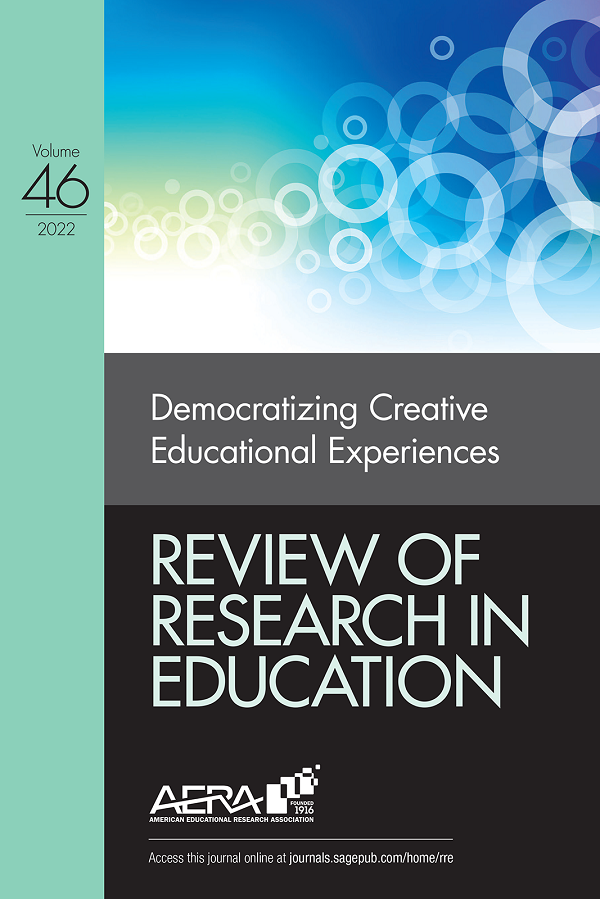后人类创造力:超越人类的创造性教育体验民主化
IF 2.4
1区 教育学
Q1 EDUCATION & EDUCATIONAL RESEARCH
引用次数: 1
摘要
本章探讨了后人文主义理论和实践与21世纪学校、大学和非正式学习环境中创造性教育体验民主化的迫切相关性。在气候变化、人工智能和人畜共患疾病的时代,非人类机构在人类文化和生活中错综复杂,后人文主义挑战了人类在创造性教育中短视的中心地位。本章使用制图方法,批判性地绘制了四个实质性研究领域的后人文主义创造力研究的关键理论和辩论:(a)过程哲学,(b)影响研究,(c)基于地点的教育,和(d)创造性生态学。本章将正规和非正规教育背景下创造性经验的理论概念和实践例子联系起来,根据后人类的转变,为创造性的批判性研究提供了一个替代议程。本文章由计算机程序翻译,如有差异,请以英文原文为准。
Posthuman Creativities: Democratizing Creative Educational Experience Beyond the Human
This chapter explores the urgent relevance of posthumanist theory and practice for democratizing creative educational experiences in 21st-century schools, universities, and informal learning environments. Posthumanism challenges the myopic centering of the human in creative education in an age of climate change, artificial intelligence, and zoonotic disease, where nonhuman agencies are intricately imbricated in human cultures and lives. Using a cartographic methodology, the chapter critically maps key theories and debates in posthumanist creativity studies across four substantive fields of inquiry: (a) process philosophy, (b) affect studies, (c) place-based education, and (d) creative ecology. Drawing links between theoretical concepts and practical examples of creative experience across formal and informal education contexts, the chapter scopes an alternative agenda for critical studies of creativity in light of the posthuman turn.
求助全文
通过发布文献求助,成功后即可免费获取论文全文。
去求助
来源期刊

Review of Research in Education
EDUCATION & EDUCATIONAL RESEARCH-
CiteScore
15.70
自引率
0.00%
发文量
14
期刊介绍:
Review of Research in Education (RRE), published annually since 1973 (approximately 416 pp./volume year), provides an overview and descriptive analysis of selected topics of relevant research literature through critical and synthesizing essays. Articles are usually solicited for specific RRE issues. There may also be calls for papers. RRE promotes discussion and controversy about research problems in addition to pulling together and summarizing the work in a field.
 求助内容:
求助内容: 应助结果提醒方式:
应助结果提醒方式:


